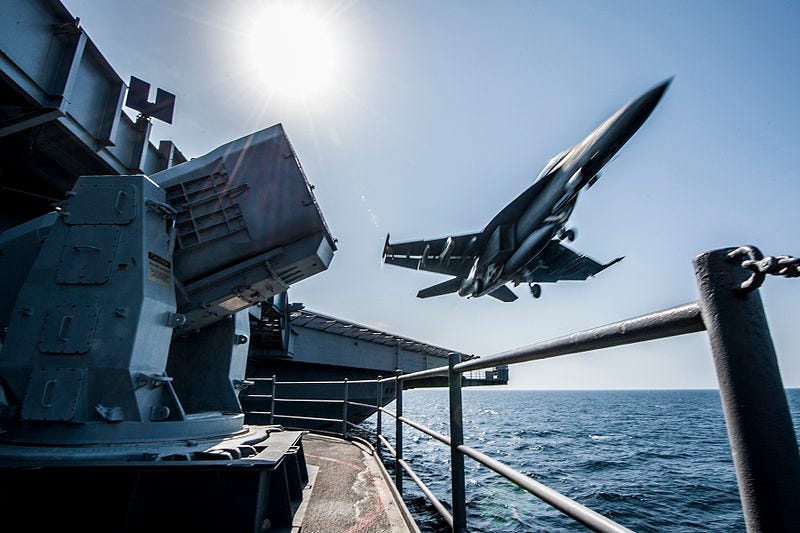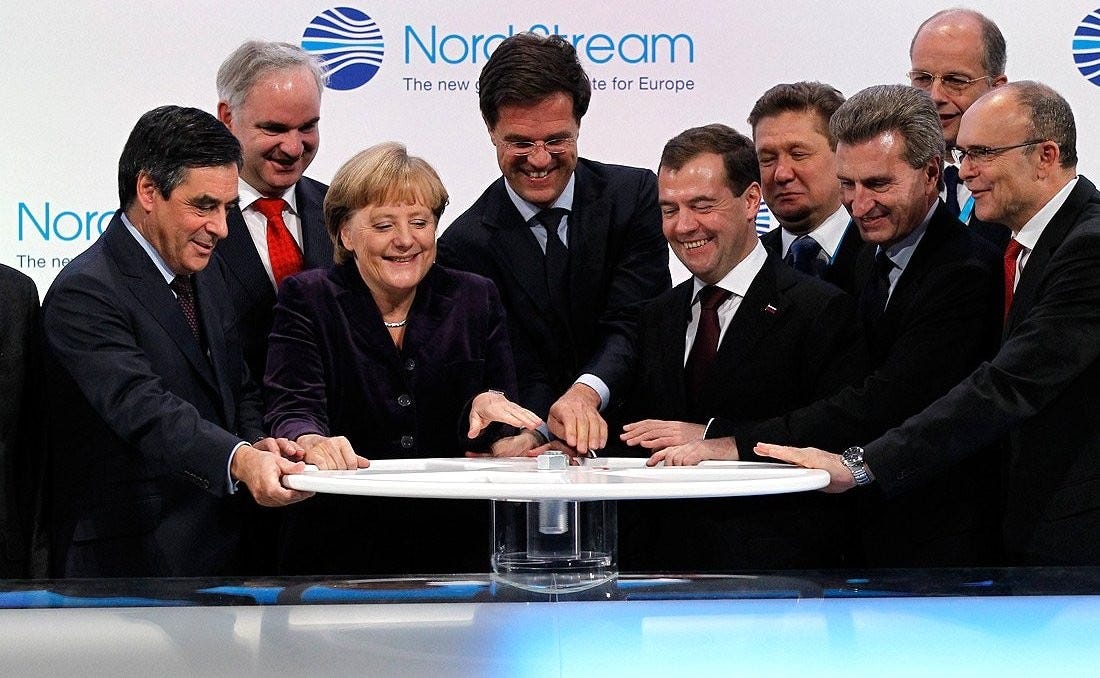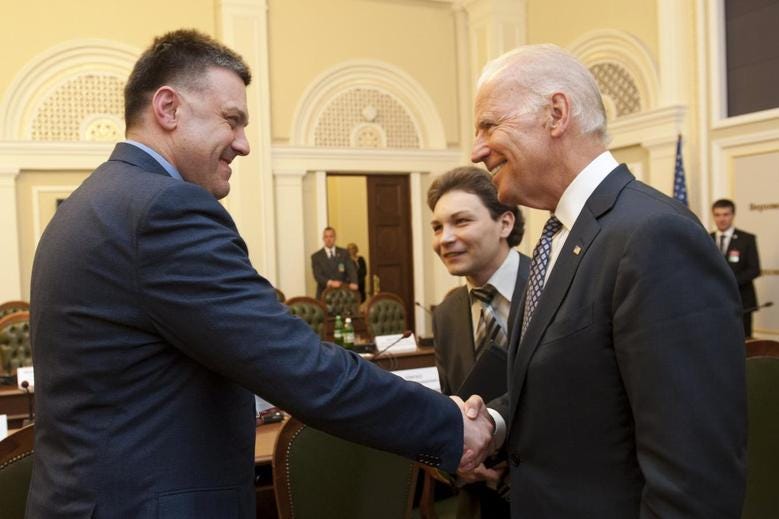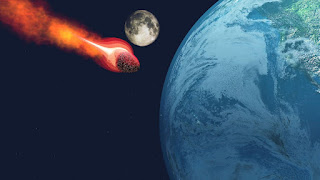America's war against Europe
What was Uncle Sam up to in Ukraine?
by Noah Carl
Image: US Navy, FA-18 launch during Inherent Resolve, 2014
One camp says that Putin is an imperialist bent on recreating the Soviet Union, who invaded Ukraine (a country he doesn’t consider real) in order to expand Russia’s territory and population. According to this camp, there’s nothing the West could have done to prevent Putin’s invasion short of allowing Ukraine to become a hollowed-out vassal state, or arming Ukraine to the teeth in the faint hope of deterring Russian bellicosity.
The other camp says that Putin saw US/NATO involvement in Ukraine as a threat to Russian interests (including both the security of Russia itself and the interests of ethnic Russians in the Donbas), and he invaded the country as a way to neutralise that threat. According to this camp, the West could have prevented Putin’s invasion by enforcing an agreement along the lines of Minsk II, i.e., one that enshrined Ukrainian neutrality.
The key element here is US/NATO involvement, since without such involvement Kiev would never have risked provoking its larger and more powerful neighbour. Despite this, few in the second camp try to explain why the US/NATO got involved in Ukraine. Or if they do, they chalk up to “misguided policy” or “policy mistakes”; US officials were just too wedded to the principle that every state can choose its own alliances.
Yet there’s an alternative possibility: the US got involved in Ukraine in order to provoke Russia; it took the various actions that it did, starting in 2008, with the aim of inciting conflict between Russia and Ukraine (though not necessarily all-out war).
Why would it do this? Two primary reasons. First, to get a geostrategic rival bogged down in a costly and protracted conflict, thereby degrading its economy and armed forces. Second, to drive a wedge between Europe and Russia, thereby limiting future cooperation between them and cementing the power of the US-led NATO alliance.
The first reason is self-explanatory – the US wants its rivals to be less powerful. But the second requires further elaboration. What would the US have to gain by driving a wedge between Europe and Russia? In short, reduced European strategic autonomy and increased reliance on the US.
American primacy
As the journalist Mike Whitney notes, if relations between Europe and Russia are relatively friendly, there is less need for NATO, less need for expensive US-made weapon systems and less need for a US military presence on the continent.
But wouldn’t all that be a plus from the US point of view? Like former President Trump, don’t most Americans want to stop subsidising Europe’s security? They might, but that’s not how many in the US foreign policy establishment see things. Which raises an important point: when I refer to what “the US wants”, I’m really talking about what certain elements within the foreign policy establishment want (“US hawks” is a useful shorthand).
As Hastings Ismay, the first Secretary General of NATO, is reputed to have said: the purpose of NATO is not only “to keep the Soviets out”, but also to “keep the Americans in, and the Germans down”. Although Ismay was an Indian-born British general, his quip undoubtedly reflected the views of the organisation’s main backers, the Americans.
This awkward truth was not lost on more nationalistic European leaders at the time. Noting that “Europe is useless if it doesn’t control its own defence,” the French President Charles de Gaulle described NATO as “a machine to disguise the stranglehold of America over Europe.” He added, “Thanks to NATO, Europe is placed under the dependence of the U.S. without seeming to be”.
And you don’t have to go back to the sixties to find evidence that US hawks see NATO as vehicle for exerting influence over Europe, rather than as a costly burden on American taxpayers. In 1997, the Project for the New American Century (a thinktank closely tied to the Bush administration) published a report titled ‘Rebuilding America’s Defences’, which explained how the US can “preserve and extend its position of global leadership”. Regarding Europe, it noted:
The region is stable, but a continued American presence helps to assure the major European powers, especially Germany, that the United States retains its longstanding security interest in the continent. This is especially important in light of the nascent European moves toward an independent defense “identity” and policy; it is important that NATO not be replaced by the European Union, leaving the United States without a voice in European security affairs.
Of course, American subsidisation of European security is hardly something that had to be forced on unwilling European leaders. Most of them were quite happy to spend less on defence, while prioritising election-winners like better healthcare, larger pensions and a bigger safety net. At the same time, increasing talk of European strategic autonomy evidently worried some US hawks for whom American “leadership” of the West remains crucial.
Given their overriding objective of maintaining American “leadership”, US hawks see friendly relations between Europe and Russia as a threat. This is not to say they want a major war to break out; rather that they would prefer those powers not to trade and integrate with one another. One development they found particularly concerning, as the writer Niccolo Soldo notes, was the Nord Stream 2 pipeline.
Launch ceremony for the first leg of the Nord Stream pipeline.
If completed, the project would have substantially increased Russo-European economic interdependence, setting the stage for friendlier relations and more cooperation in the future. NATO might have then been left without a raison d'être, underlining calls for an independent European defence policy. In addition, because pipeline gas is so much cheaper than LNG, the project’s completion would have effectively shut US companies out of the European energy market.
Here’s what Viktor Orbán reportedly told the journalist Sohrab Ahmari when asked about the potentially devastating consequences of Europe’s energy sanctions against Russia:
"The most cynical Hungarian answer is that that is exactly what Washington wants to bring about: to downgrade German manufactures and sever the energy-manufacturing synergy between Russia and Germany, to end Europe’s aspirations to “strategic autonomy” and induce a total dependence on America."
In light of all this, US hawks took various actions to try to spark a conflict between Ukraine and Russia; and they refrained from taking actions that might have prevented one. Which is not to say they started the whole thing: conflict between Ukraine and Russia was in the making long before the US ever got involved. But Americans did inflame and exacerbate the situation in ways that made hostilities more likely.
That’s the theory, anyway. And it is just a theory. I’m not saying I completely buy it. However, it is sufficiently plausible to be worth discussing.
In the remainder of this article, I want to discuss pieces of evidence that are hard to explain without assuming US hawks were trying to incite conflict between Ukraine and Russia and/or drive a wedge between Europe and Russia. Before continuing, I would point out even if the theory is true, this doesn’t absolve Russia of responsibility for the death and destruction it has wrought in an illegal, unjustified and increasingly brutal war.
Can states choose their own alliances?
The first thing to say is this probably is true of some officials. The US foreign policy establishment is not a single “actor”, and different individuals and agencies within it are often at cross-purposes. Some favour one course of action, while others favour another.
However, what’s also true is that many US officials don’t accept the principle that every state can choose its own alliances. This was made abundantly clear when the Solomon Islands signed a new security agreement with China earlier this year. “If steps are taken to establish a de facto permanent military presence,” the White House warned, “the United States would then have significant concerns and respond accordingly”.
In other words, the US does not believe the Solomon Islands has the right to form a military alliance with China – America’s main geostrategic rival. One US hawk even wrote an article advising Western leaders not to rule out a “deterrent intervention” in the Solomon Islands.
Now, it’s possible that all the officials handling America’s Ukraine policy are sincere believers in the principle that every state can choose its own alliances – and it’s only the ones handling America’s Pacific policy that take the contrary view. More likely is that most officials pay lip service to such principles when they work in America’s favour and then ignore those principles when they don’t.
Indeed, the US has long maintained the Monroe Doctrine, according to which other great powers must not interfere in the Western hemisphere. As recently as 2019, national security advisor John Bolton claimed the Doctrine is “alive and well”. Officials from Cuba and Venezuela – two countries heavily sanctioned by the US – have attested that it remains extant.
The Bucharest Summit Declaration
According to the camp that emphasises US/NATO involvement, all the trouble began when NATO declared at the April 2008 Bucharest Summit that Ukraine and Georgia “will become members”. Putin apparently “flew into a rage”, warning that “if Ukraine joins NATO, it will do so without Crimea and the eastern regions. It will simply fall apart.”
In January, Ukrainian leaders had signed a statement asking to join the NATO Membership Action Plan. And although NATO did not offer Ukraine membership at the Summit, it still took the unprecedented step of announcing its intention to admit Ukraine in the future. As contemporary accounts make clear, this was done at the behest of the US against significant opposition from France and Germany. Here’s what the New York Times wrote:
President Bush threw the NATO summit meeting here off-script on Wednesday by lobbying hard to extend membership to Ukraine and Georgia, but he failed to rally support for the move among key allies … Mr. Bush’s position that Ukraine and Georgia should be welcomed a Membership Action Plan … directly contradicted German and French government positions stated earlier this week.
Bush’s decision to “lobby hard” for Ukraine’s membership is particularly noteworthy in light of two cables that were sent earlier that year by the US Ambassador to Russia, William Burns (who is now CIA Director). The first, titled ‘NYET MEANS NYET: RUSSIA’S NATO ENLARGEMENT REDLINES’, noted the following:
Not only does Russia perceive encirclement, and efforts to undermine Russia's influence in the region, but it also fears unpredictable and uncontrolled consequences which would seriously affect Russian security interests … Russia is particularly worried that the strong divisions in Ukraine over NATO membership, with much of the ethnic-Russian community against membership, could lead to a major split, involving violence or at worst, civil war.
The second clarified that “Ukrainian entry into NATO is the brightest of all red lines for the Russian elite (not just Putin)”. Burns added, “In more than two and a half years of conversations with key Russian players, from knuckle-draggers in the dark recesses of the Kremlin to Putin’s sharpest liberal critics, I have yet to find anyone who views Ukraine in NATO as anything other than a direct challenge to Russian interests.”
What’s more, opinion polls at the time showed that a large majority of Ukrainians were opposed to NATO membership. In a 2008 Gallup poll, 43% of saw NATO as a “threat”, compared to only 15% who saw it as “protection”. And in a Pew Research survey, 51% were against joining the organisation, compared to only 28% in favour – ‘Ukraine Says ‘No’ to NATO’ ran the headline.
So despite opposition from key European allies, opposition from the majority of Ukrainian citizens, and vehement opposition from Russia, Bush “lobbied hard” for Ukrainian membership of NATO. It’s difficult to see why he would have done this unless he was actively trying to stir up trouble.
The “Revolution of Dignity”
The next major provocation those in the second camp mention is Western support for the “Revolution of Dignity”, which saw the replacement of Ukraine’s pro-Russian government with one made of pro-Western nationalists. Aside from hand-picking the next Prime Minister, US officials repeatedly met with Oleh Tyahnybok, leader of the far-right and anti-Russian party, Svoboda.
Over the years, Tyahnybok has made numerous inflammatory comments about Jews, Russians and others. In 2012, the EU officially denounced Svoboda as “racist, anti-Semitic and xenophobic”, while calling on other parties in the Ukrainian parliament “not to associate with, endorse or form coalitions with this party”.
Svoboda only received 10% of the vote in the 2012 elections. Yet it somehow managed to obtain almost a quarter of cabinet positions in the government that came to power after Yanukovych was toppled. This led two analysts to write in Foreign Policy, “The uncomfortable truth is that a sizeable portion of Kiev’s current government … are, indeed, fascists”.
Biden shaking hands with Oleh Tyahnybok at the Ukrainian parliament, April 2014.
The question is: why did US officials (including John McCain, John Kerry, Victoria Nuland and even Joe Biden) repeatedly meet with Tyahnybok – a man whom in any other context they would have surely denounced as “racist”. And as Ukraine’s main backer, why did they allow almost a quarter of cabinet positions in the interim government to go to Svoboda?
This would be like Chinese officials travelling to Canada, publicly backing a pro-Chinese protest movement, and then meeting with a staunchly anti-American politician known for making inflammatory comments about Jews.
Given how easy it would have been for US officials to “disavow” Tyahnybok and his party, while still expressing support for all the other pro-Western parties in Ukraine, the most plausible explanation for their behaviour is that they were trying to antagonize Russia.
We’ve all seen the clip of Biden ominously warning, “if Russia invades … there will be no longer Nord Stream 2. We will bring an end to it.” And most of us have also seen the clip of Victoria Nuland stating, “I want to be clear with you today: if Russia invades Ukraine, one way or another, Nord Stream 2 will not move forward”.
Less well known is that in the years leading up to Russia’s invasion, about dozen other officials openly threatened to “end”, “halt”, “stop”, “kill”, “cancel”, “shut down”, “take out”, “terminate” and “put an end to” Nord Stream 2. Footage of these individuals has been compiled in a video by the journalist Matt Orfalea. Their number include both Republicans and Democrats, indicating that opposition was bipartisan.
In 2017, the US sanctioned Russia in an effort to thwart Nord Stream 2, prompting sharp rebukes from European leaders. Then in 2019, the US Ambassador to Germany wrote “threatening letters” to several German companies involved in the pipeline’s construction – a move that was met with “incomprehension” in the German foreign office. Yet by July of 2021, U.S. officials had “given up on blocking the pipeline’s completion” and were “scrambling to contain the damage”.
You might claim that US officials were just looking out for Europe, given the risk that Putin might one-day shut off the gas without warning. However, they could have expressed their concerns through diplomatic channels while recognising that the decision of whether to proceed was ultimately one for Europe. Openly threatening to “kill” a project in which several of your supposed allies are involved is extraordinary behaviour.
This would be like members of the European Parliament talking about “killing” the tanker fleet that brings Saudi oil into the United States. No other Western country’s officials talk about their “allies” in such terms.
Moreover, if the Americans were so concerned about Europe having a reliable energy supply, they could have offered to subsidise LNG exports (even though these could never replace all the gas imported from Russia). Instead, the US is now selling Europe vast quantities of LNG at market prices, which are substantially higher than those paid for Russia’s pipeline gas – leading to accusations of “profiteering”.
Again, it seems difficult to believe US opposition to Nord Stream 2 stemmed purely from sympathetic concerns about the security of Europe’s energy supply. More likely is that it was motivated in part by the goal of exporting less-competitive LNG, as well as by the broader goal of limiting Russo-European interdependence.
Other datapoints
There are several other datapoints consistent with the theory that US hawks were trying to incite conflict between Ukraine and Russia and/or drive a wedge between Europe and Russia.
In the famous leaked phone call where Victoria Nuland specifies who the next Prime Minister of Ukraine will be two weeks before Yanukovych was toppled, she says “And you know, fuck the EU”. While this is hardly a smoking gun, it illustrates the willingness of US officials to completely disregard the preferences of their European counterparts. (Nuland happens to be married to Robert Kagan, co-founder of the Project for the New American Century.)
As I mentioned in a previous article, the US government-funded RAND corporation published a report in 2019 on strategies to “overextend and unbalance” Russia, one of which was “providing lethal aid to Ukraine”. The report explicitly stated that those strategies “would not have either defence or deterrence as their prime purpose”, but rather would be designed to “unbalance the adversary … causing Russia to overextend itself militarily”. So US decision-makers evidently were looking at how Ukraine could be used to weaken Russia.
In February of 2021, Zelensky banned three pro-Russian TV stations linked to then-opposition leader Viktor Medvedchuk. This was “not only a defensive move”, Zelensky’s former national security advisor told Time Magazine. The decision to go after Medvedchuk, a personal friend of Putin, was “calculated to fit in with the U.S. agenda”. It’s not entirely clear what he meant by this, but banning pro-Russian TV stations is not the kind of “agenda” you’d associate with diffusing tensions.
In the weeks leading up to the invasion, Russian officials (whether you believe them or not) repeatedly stated that the “main issue” was NATO expansion. They were rebuffed by their American counterparts, with Derek Chollet later confirming that the US “refused to talk about NATO expansion with Russia”. And as the journalist Aaron Maté notes, Zelensky all but admitted Russia’s core demand was used as bait. He told CNN:
I requested them personally to say directly that we are going to accept you into NATO in a year or two or five – just say it directly and clearly or just say no. And the response was very clear, you're not going to be a NATO member, but publicly, the doors will remain open.
If you have no intention of admitting a country into NATO, and publicly renouncing that country’s membership might help prevent a war, you’d have thought it would be worth doing. But apparently not to the Americans.
For the last six years, US elites – particularly the Democrats but also the “never Trump” Republicans – have been absolutely obsessed with Russia. They exaggerated the scale of Russian interference in the 2016 election, up to the point of calling the election “stolen”. They endorsed baseless stories about Russia paying bounties to the Taliban for killing US soldiers in Afghanistan. And they falsely claimed that the Hunter Biden laptop story was “Russian disinformation”.
By itself, of course, this doesn’t prove anything. But given the role of US intelligence agencies in spreading many of the false or exaggerated claims, it hints at a concerted effort to make Americans view Russia less favourably – similar to what happened in the run-up to Iraq. I’m not saying Russia deserves to be viewed favourably. As I’ve already mentioned, they’re prosecuting an illegal, unjustified and increasingly brutal war. But it’s noteworthy how obsessed US elites became with Russia.
The theory I’ve discussed in this article – that elements within the US foreign policy establishment incited conflict between Russia and Ukraine in order to overextend Russia and reduce European strategic autonomy – is far from proven. Practically all the evidence for it is circumstantial; there are no leaked State Department documents that would constitute a smoking gun.
Having said that, I find the totality of evidence harder to explain under the hypothesis that US officials were really trying to reduce the risk of conflict between Russia and Ukraine; or that they care so much about the principle “states can choose their own alliances” that they decided the risks of taking the actions they took must outweigh the benefits.
Whatever else may be true, geopolitical developments since the start of Russia’s invasion certainly look convenient from the perspective of US hawks: Russia’s military has been severely weakened; Nord Stream 2 has been sanctioned and sabotaged; US LNG exports to Europe have surged; European companies have started relocating to America; and the NATO alliance is stronger than ever. US hawks 1; everyone else 0.
For further reading on this topic, I would recommend this article by Mike Whitney, this article by Niccolo Soldo, this article by Aaron Maté, this article by Michael Hudson, and this article by Thomas Fazi.





















